Abstract
Six male White Carneaux pigeons were trained to peck at one of two keys to obtain food on several fixed-ratio schedules of reinforcement. Concurrently, the first response on a second key could, I—change the conditions of visual stimulation and remove the food reinforcement contingency, II—change the conditions of stimulation and have no effect upon the reinforcement contingency, or III—do nothing. The second response on the stimulus change key always restored baseline conditions. When second-key responses produced a stimulus change, the number of such responses was a function of the ratio value on the first key. Typically, second-key responses occurred before the start of fixed-ratio runs. The duration of stimulus change periods was an exponential function of the number of responses required for reinforcement when the possibility for reinforcement was not disturbed by periods of stimulus change (Condition II).
Full text
PDF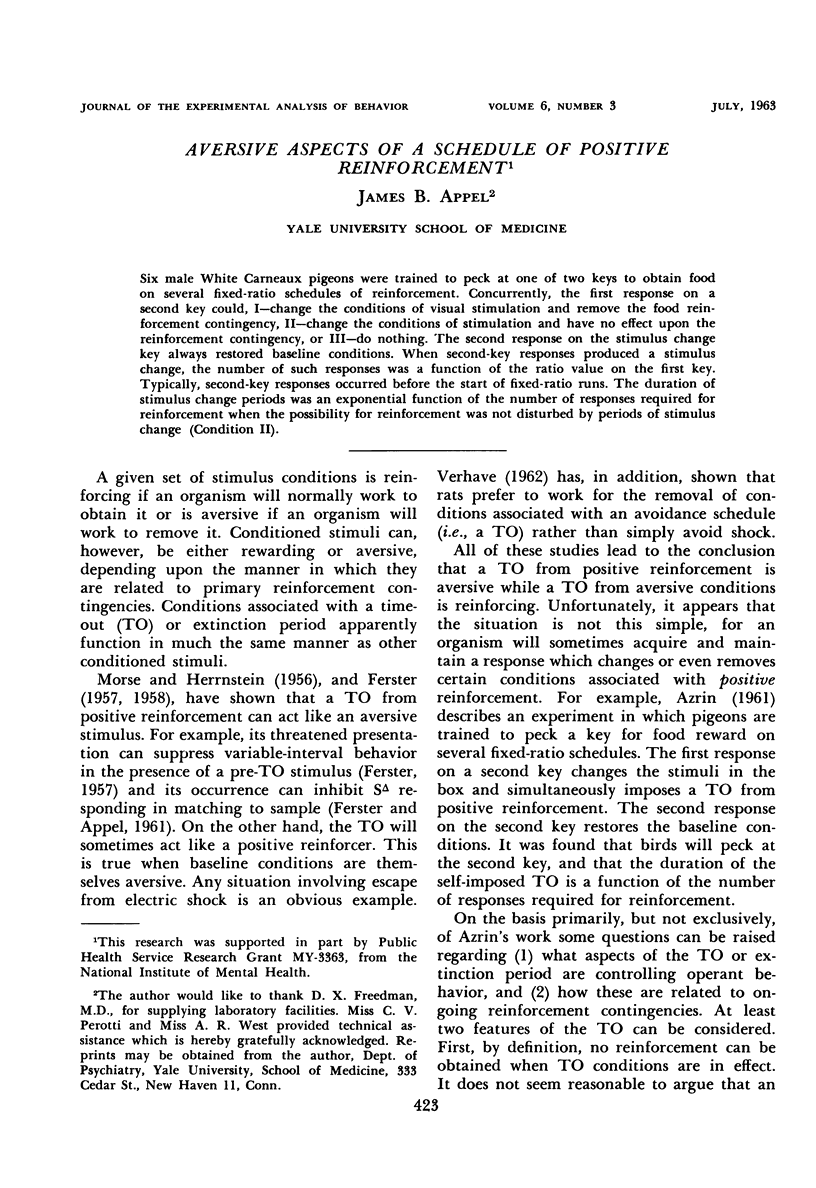
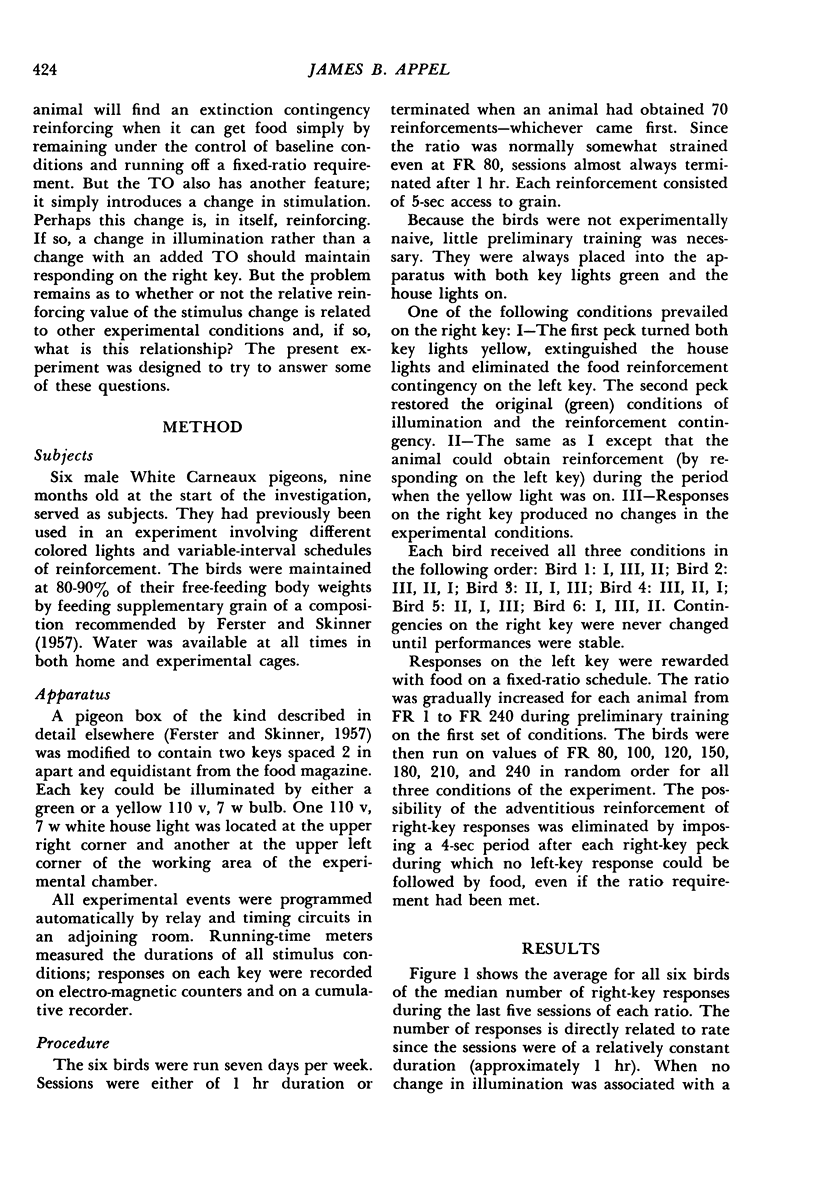
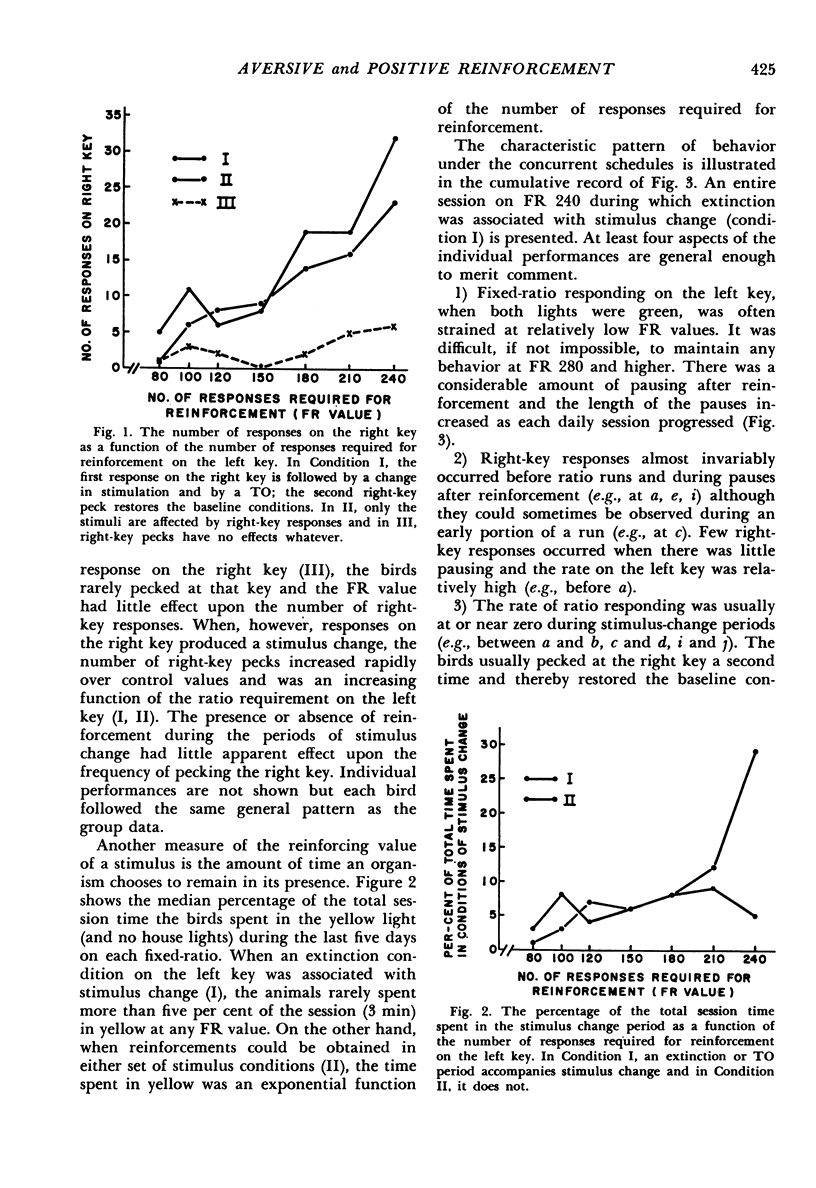
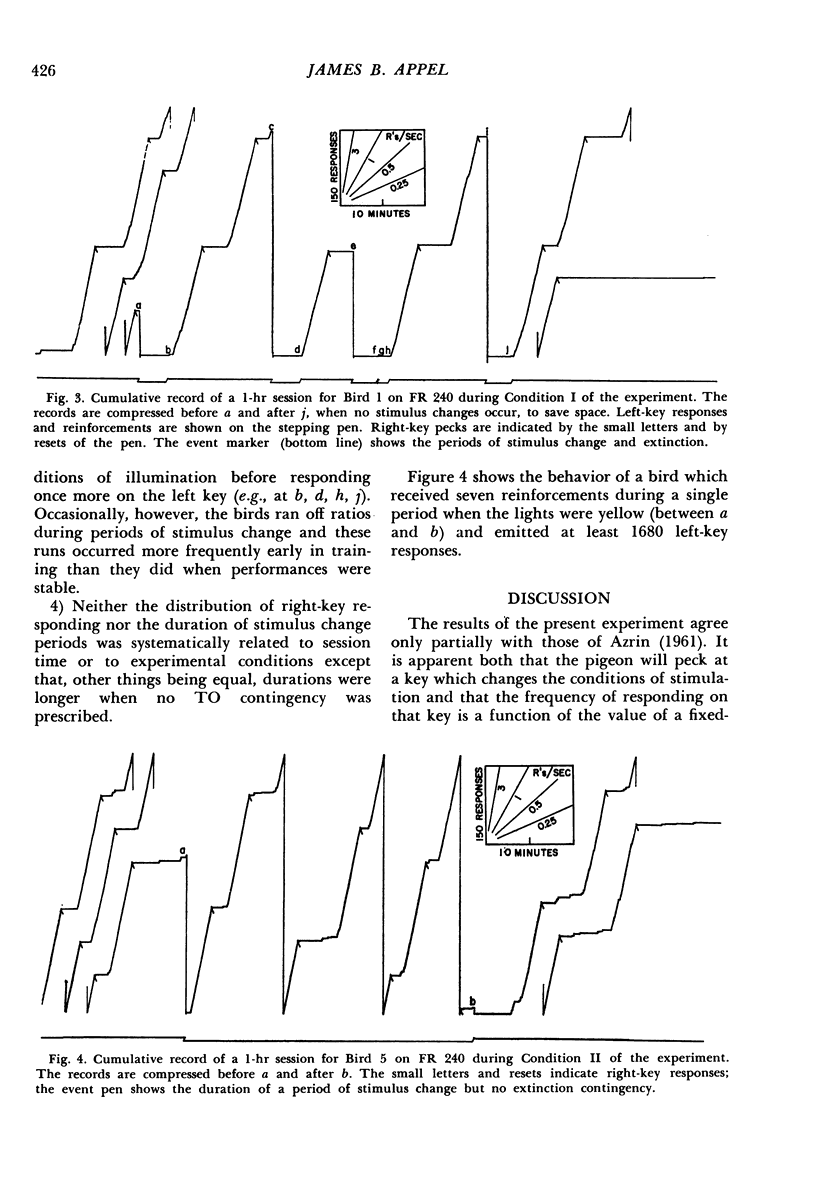
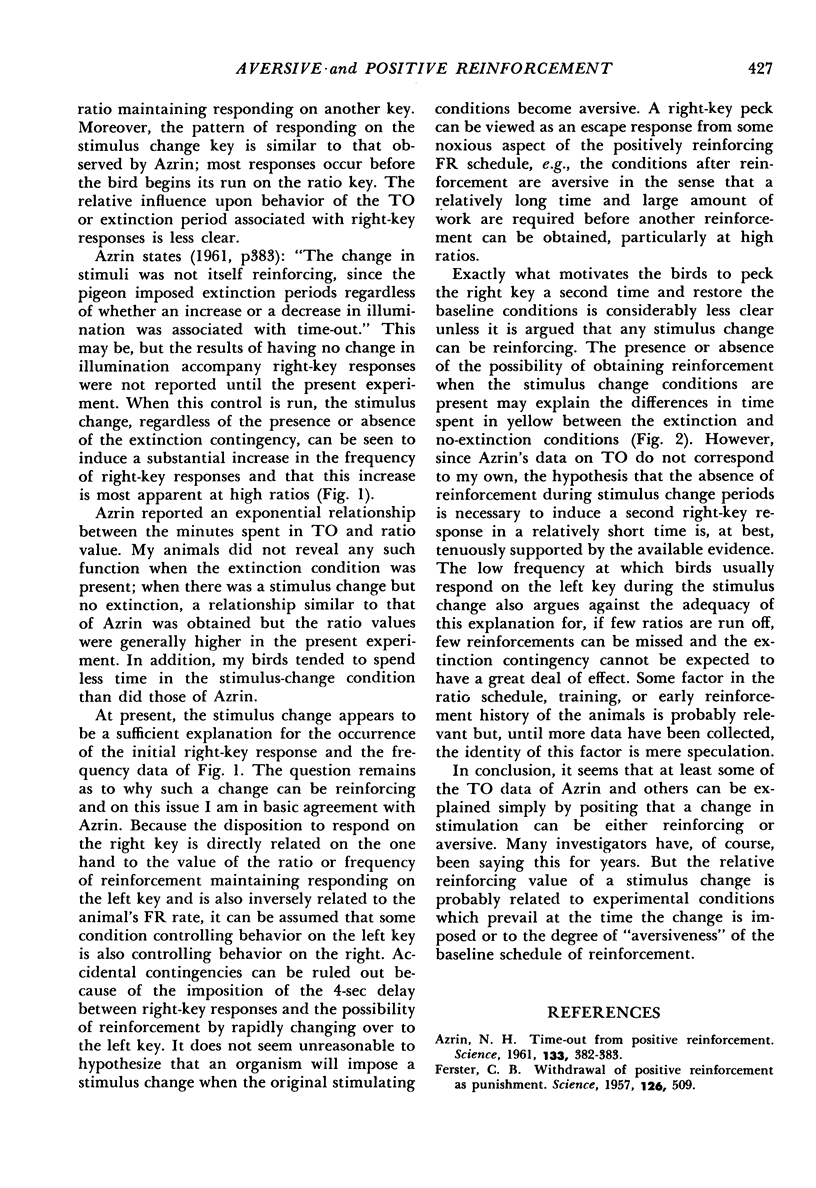
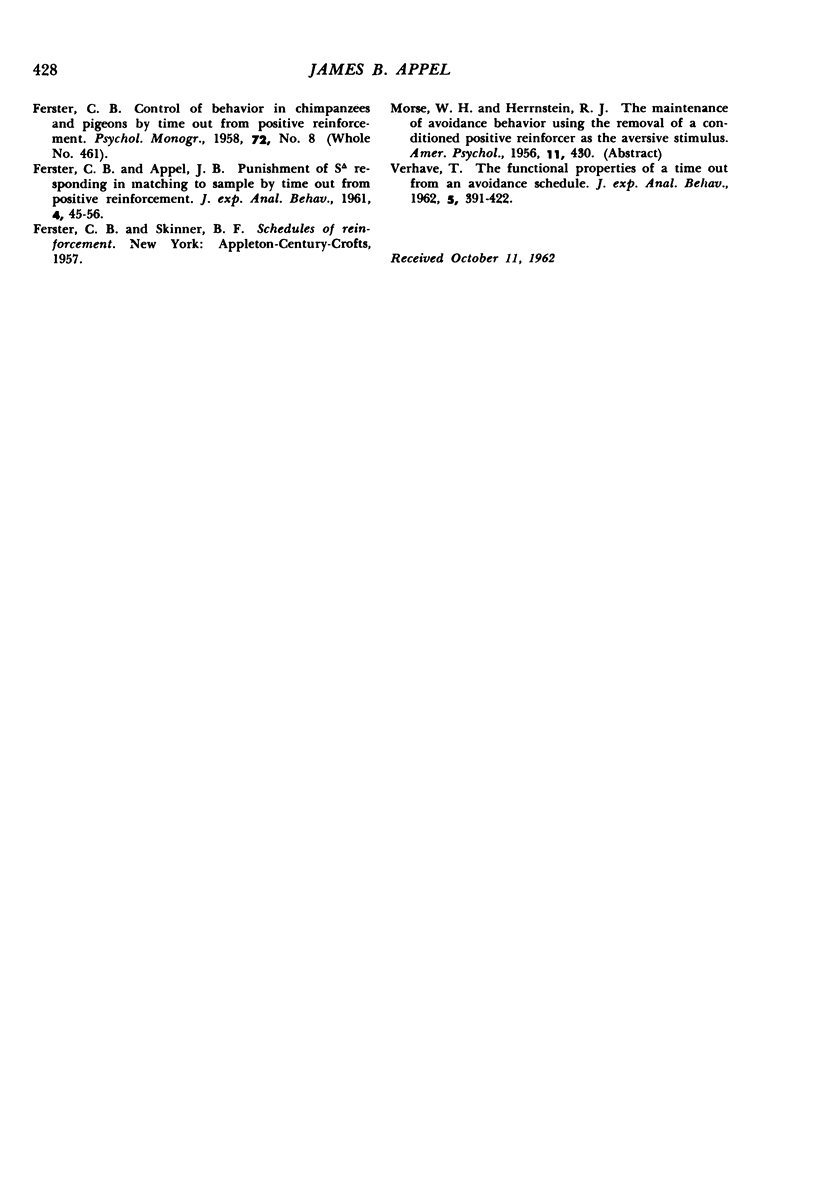
Selected References
These references are in PubMed. This may not be the complete list of references from this article.
- AZRIN N. H. Time-out from positive reinforcement. Science. 1961 Feb 10;133(3450):382–383. doi: 10.1126/science.133.3450.382. [DOI] [PubMed] [Google Scholar]
- FERSTER C. B., APPEL J. B. Punishment of S delta responding in matching to sample by time out from positive reinforcement. J Exp Anal Behav. 1961 Jan;4:45–56. doi: 10.1901/jeab.1961.4-45. [DOI] [PMC free article] [PubMed] [Google Scholar]
- FERSTER C. B. Withdrawal of positive reinforcement as punishment. Science. 1957 Sep 13;126(3272):509–509. doi: 10.1126/science.126.3272.509. [DOI] [PubMed] [Google Scholar]
- VERHAVE T. The functional properties of a time out from an avoidance schedule. J Exp Anal Behav. 1962 Oct;5:391–422. doi: 10.1901/jeab.1962.5-391. [DOI] [PMC free article] [PubMed] [Google Scholar]


